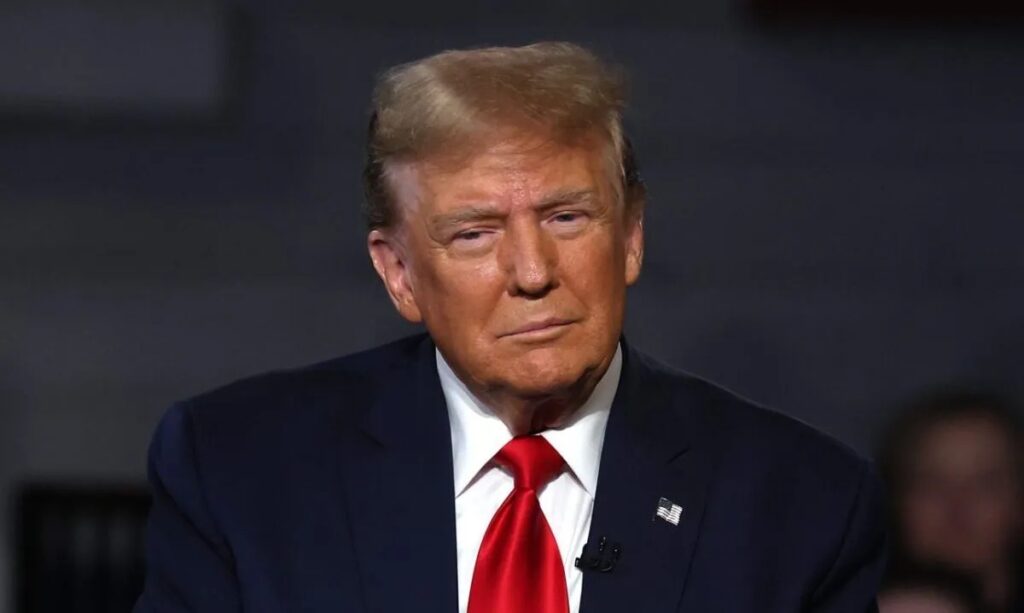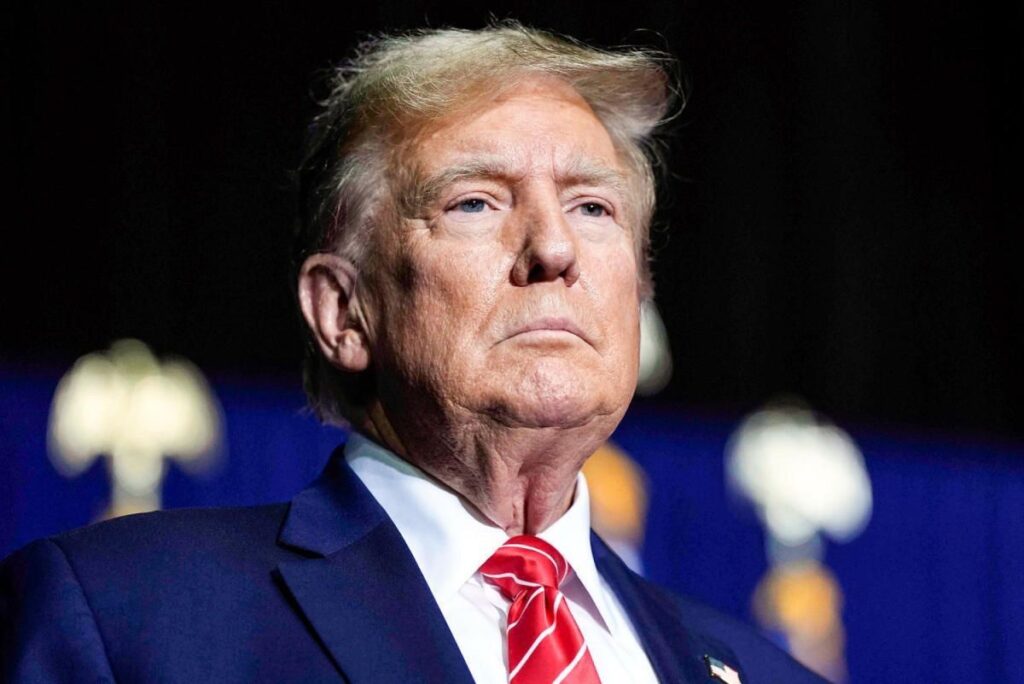While it’s pretty obvious that Trump is in a serious legal battle, you’d be surprised to know that he ticks all the boxes necessary for a presidential run. However, the 14th Amendment introduces a significant obstacle. It stipulates that anyone who has taken an oath of office and then engaged in insurrection cannot hold any office in the US.
Earlier this year, the Supreme Court clarified that this prohibition would require a specific law from Congress for enforcement to commence. However, the development doesn’t seem highly feasible in the near future.
As you may know, Trump’s sentencing is on July 11, and this date is particularly noteworthy as it falls just four days before the Republican National Convention kicks off in Milwaukee.
Could Trump Face Prison Time? Exploring the Unlikely but Possible Scenario
While it’s technically possible for Donald Trump to be sentenced to prison, it’s perhaps improbable for a first-time offender. According to CNN’s senior legal analyst Elie Honig, most convictions for Class E felonies in New York—the least severe category—usually result in non-prison sentences. These sentences often include a mix of probation, fines, and community service.

ALSO READ: Trump’s Criminal Trial Is Days Away, Here’s Everything We Know About It
Interestingly, there is historical precedent for presidential campaigns being conducted from behind bars, albeit unsuccessful ones. In 1920, Socialist leader Eugene Debs ran his presidential campaign from a federal prison in Atlanta, where he was serving a 10-year sentence for sedition after urging Americans to resist the draft during World War I.
Regardless of his legal troubles, Trump is guaranteed lifetime Secret Service Protection as a former president. Anthony Guglielmi, the Secret Service’s chief of communications, confirmed that their security protocols remain the same.
Can Trump Follow in Eugene Debs’ Footsteps?
The Supreme Court upheld Eugene Debs’ conviction, stating he was punished for opposing the draft and actively encouraging non-compliance. The then-justice Oliver Wendell Holmes penned the decision just months before he famously shifted his stance on free speech. That free speech shaped today’s interpretation of the First Amendment.
Thomas Doherty, a professor of American studies at Brandeis University, highlighted Debs’ unusual campaign. Despite being imprisoned, Debs gained nearly a million votes—over 3% of the total. Even after the repeal of the Sedition Act, Debs remained incarcerated, as then-President Woodrow Wilson refused to pardon him.
ALSO READ: Choosing Trump Over Biden is a “Policy, Not Emotion” Decision, Sage Steele Says
It wasn’t until Wilson’s successor, Warren G. Harding, commuted Debs’ sentence in 1921 that they granted him freedom.
The Complex Question: Can a Convicted Felon Vote?
It is noteworthy that a convicted felon can vote depending on the state. For Trump, his right to vote in the upcoming election in Florida heavily depends on his sentence and whether he completes it before Election Day.

In the United States, voting laws for felons differ widely. Vermont and Maine allow felons to vote while incarcerated, and many states are progressively enabling parolees to vote. Florida, where Trump is now a resident, passed a 2018 referendum to re-enfranchise felons.
However, Republican legislators later imposed that felons must settle all fines and fees linked to their sentences. Neil Volz, deputy director of the Florida Rights Restoration Coalition, predicts that Trump will likely face no significant barriers to voting.
Florida typically defers to the jurisdiction of the conviction. For instance, New York law has allowed any non-incarcerated felon to register to vote since 2021. Even if Trump were to receive a prison sentence, it is unlikely that his appeal process would conclude before Election Day.
However, the situation could change dramatically if he were convicted in one of the federal cases before the election. Many felons in Florida face challenges post-incarceration, which would not affect Trump. According to CNN, the lack of a centralized database for required fees has led to confusion and prevented many from voting.
So, as it stands, Trump’s ability to vote depends on the serious interplay of legal processes and state-specific regulations. While we are uncertain of the outcome, the precedent and current laws at least give us a direction.
You Might Also Like:
Donald Trump Promotes New Election Strategy in a Bid for Victory
Legal Saga: Perrier Classified as Soda, Subject to Taxation, Not Water
Senate Report Exposes Decades of Deception by Oil Giants on Climate Change
Kristi Noem Says Biden’s Dog Deserves Same Fate as Her Shot Dog, Cricket
Democrats Clash Over Concerns for Biden Immigration Policies
